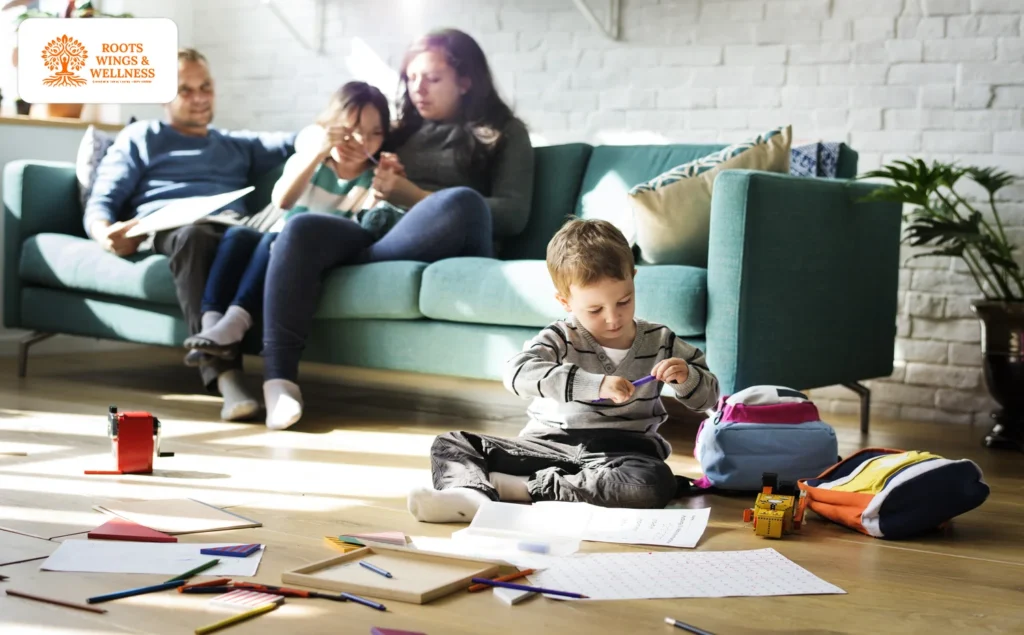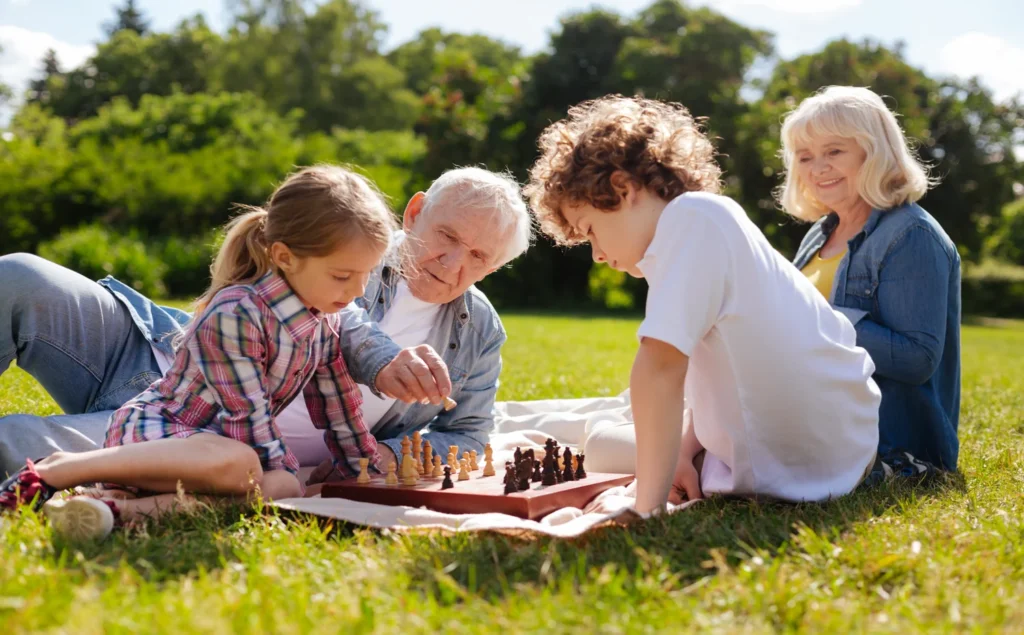Mental Wellness
Mental wellness is about feeling emotionally and mentally balanced. It means being able to handle stress, build positive relationships, and make thoughtful decisions. Good mental health
allows you to feel confident, focused, and capable of navigating life’s
challenges without feeling overwhelmed.
Your mental well-being impacts every part of your life—how you think, feel, and act. When your mental health is strong, you’re better equipped to handle stress, build healthier relationships, and
make positive decisions. It also supports physical health by improving sleep, digestion, and immune function.
Recognizing the early signs of mental health struggles can help you take action sooner:
- Feeling constantly tired or low on energy
- Difficulty concentrating or making decisions
- Mood swings or feeling irritable
- Sleep problems (sleeping too much or too little)
- Withdrawing from social activities or loved ones
Here are some simple, natural ways to strengthen your mental wellness:
- Exercise regularly – Physical activity boosts mood and reduces stress.
- Eat a balanced diet – Include whole grains, leafy greens, and healthy fats.
- Practice mindfulness – Deep breathing and meditation help calm the mind.
- Stay socially connected – Talking to a friend or family member can lighten your mood.
- Set boundaries – Learn to say no when you need to protect your time and energy.
If you’re feeling overwhelmed, persistently anxious, or emotionally low for more than two weeks, it might be time to reach out to a mental health professional. Therapy and counseling can provide tools to manage stress, improve emotional health, and work through deeper challenges.
🌿Mindfulness and Self-Growth
Mindfulness is the practice of being fully present and aware of your thoughts, feelings, and surroundings without judgment. It’s about focusing on the present moment rather than worrying about the past or future. This awareness helps calm the mind and improve focus.
Practicing mindfulness regularly can:
- Reduce stress and anxiety
- Improve focus and concentration
- Enhance emotional regulation
- Increase self-awareness and self-acceptance
- Help you respond calmly to difficult situations
Mindfulness isn’t just about meditation—it can be woven into everyday activities:
- Mindful eating – Pay attention to the flavors, textures, and smells of your food.
- Mindful walking – Notice how your feet feel on the ground and observe your surroundings.
- Deep breathing – Pause and take a few slow, deep breaths to reset.
- Single-tasking – Focus on one task at a time instead of multitasking.
- Mindful listening – Give your full attention when someone is speaking.
Meditation is a formal practice where you sit quietly and focus on your breath, thoughts, or surroundings. Mindfulness is more flexible—it’s about bringing awareness to any activity, whether you’re washing dishes, walking, or talking to a friend. Meditation is one way to practice mindfulness, but mindfulness can be practiced anytime, anywhere.
You might notice small improvements in focus and stress levels within a week or two. Long-term benefits, like emotional balance and increased self-awareness, often become more noticeable after a few months of consistent practice. The key is consistency, not perfection!
🌍 Sustainability and Green Living
Living sustainably means making choices that reduce harm to the environment and preserve natural resources for future generations. It’s about using less, wasting less, and making thoughtful decisions about what you buy and how you live.
Sustainable living helps reduce pollution, conserve natural resources, and protect ecosystems. It also improves human health by reducing exposure to harmful chemicals and improving air and water quality. Small changes at the individual level can have a big collective impact.
- Reduce single-use plastics – Use reusable shopping bags and water bottles.
- Conserve energy – Turn off lights and appliances when not in use.
- Eat locally and seasonally – Support local farmers and reduce your carbon footprint.
- Reduce food waste – Plan meals and use leftovers creatively.
- Use eco-friendly products – Choose biodegradable and reusable items.
Mindfulness makes you more aware of your consumption habits and environmental impact. When you slow down and reflect before making a purchase, you’re more likely to choose products that align with your values and reduce waste.
It doesn’t have to be! Many sustainable habits, like reducing waste, conserving energy, and buying second-hand, actually save money over time. The key is focusing on reducing consumption rather than buying new “eco-friendly” products.
👨👩👧👦 Parenting and Family Wellness
Mindfulness helps parents stay calm, present, and emotionally balanced. It allows you to respond thoughtfully to your child’s needs rather than reacting out of stress or frustration. This strengthens emotional connection and improves communication.
- Practice breathing exercises – Teach your child to take slow, deep breaths when they’re upset.
- Use mindfulness games – Try activities like “mindful listening” or “five senses scavenger hunt.”
- Create a calm space – Designate a quiet spot where your child can relax and reflect.
- Model mindfulness – Children learn by watching you, so practice mindfulness yourself.
- Make it playful – Keep mindfulness light and fun rather than treating it as a chore.
- Eat meals together – Family meals encourage healthy eating habits.
- Be active together – Go for walks, play outside, or try a family yoga session.
- Set consistent sleep schedules – Good sleep improves mood and focus.
- Limit screen time – Encourage reading, creative play, and outdoor activities.
- Practice gratitude – Encourage everyone to name one thing they’re grateful for each day.
- Take breaks – Step away and breathe when you feel overwhelmed.
- Ask for help – Don’t hesitate to lean on your partner, family, or friends.
- Let go of perfection – No parent is perfect, and mistakes are part of the process.
- Stay present – Worrying about the future or regretting the past adds to stress.
- Celebrate small wins – Acknowledge progress, even if it’s slow.
- Listen actively – Make eye contact and let them finish speaking without interrupting.
- Use open-ended questions – Encourage more than yes/no answers.
- Validate their feelings – Acknowledge their emotions without judgment.
- Set clear boundaries – Communicate rules and expectations calmly.
- Encourage problem-solving – Help them think through challenges rather than giving solutions.
Conscious Living
Conscious living means being intentional about your choices and how they impact your life, others, and the planet. It’s about making thoughtful decisions in areas like health, relationships, work, and the environment rather than operating on autopilot.
- Pause before making decisions – Take a moment to reflect on why you’re doing something.
- Simplify your life – Let go of clutter, commitments, and habits that don’t serve you.
- Practice gratitude – Being thankful helps shift your focus from lack to abundance.
- Consume mindfully – Buy only what you need and choose quality over quantity.
- Be present – Engage fully with the people and activities in your life.
When you live consciously, you create space for what matters most. It reduces stress by helping you focus on meaningful activities rather than trying to keep up with unrealistic expectations. It also strengthens your emotional balance by encouraging authenticity and self-awareness.
- Listen with intention – Give your full attention when someone is speaking.
- Set boundaries – Communicate your needs clearly and respectfully.
- Be authentic – Show up as your true self without fear of judgment.
- Practice forgiveness – Let go of grudges to make space for peace.
- Celebrate connection – Appreciate the people in your life and nurture those relationships.
Yes! Conscious living encourages you to slow down and reflect before making choices. Instead of reacting emotionally or following others’ expectations, you make decisions that align with your values and long-term goals.
🌍 Society and Culture
Culture shapes how we express emotions, handle stress, and connect with others. It influences our values, communication styles, and coping mechanisms. Understanding your cultural background helps you better navigate emotional challenges and form stronger relationships.
Mindfulness helps you stay present and open when interacting with others. It encourages active listening, empathy, and understanding, which builds stronger community ties. When you engage mindfully, you become more aware of your role and impact within your community.
- Celebrate traditions – Honor important festivals, rituals, and customs.
- Learn the history – Understanding your culture’s background fosters deeper connection.
- Cook traditional meals – Food is a powerful way to reconnect with cultural identity.
- Pass it on – Share stories and traditions with younger generations.
- Participate in cultural events – Support local festivals, art shows, and gatherings.
- Be curious, not judgmental – Ask questions and listen without assuming.
- Avoid stereotypes – Treat individuals as unique rather than defining them by culture.
- Learn before participating – Understand the meaning behind cultural practices.
- Support without appropriating – Appreciate cultural elements without exploiting them.
- Celebrate diversity – Embrace differences as opportunities to learn and grow.
- Volunteer your time – Support local causes and community programs.
- Practice kindness – Small gestures like a smile or helping hand go a long way.
- Advocate for change – Use your voice to support social and environmental causes.
- Support local businesses – Investing in local businesses strengthens your community.
- Educate yourself and others – Stay informed and share knowledge about important issues.







